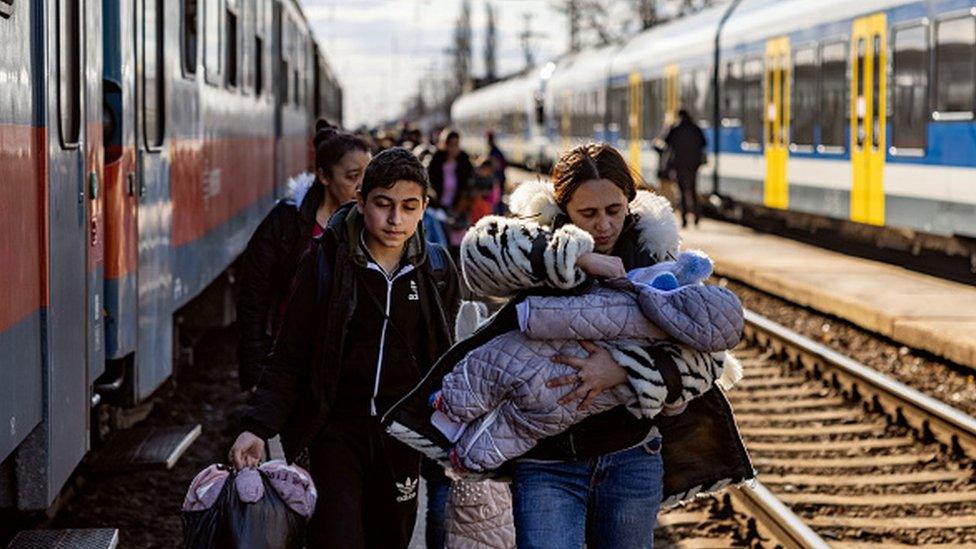Ukraine war: Russian military equipment on show in Prague
- Published
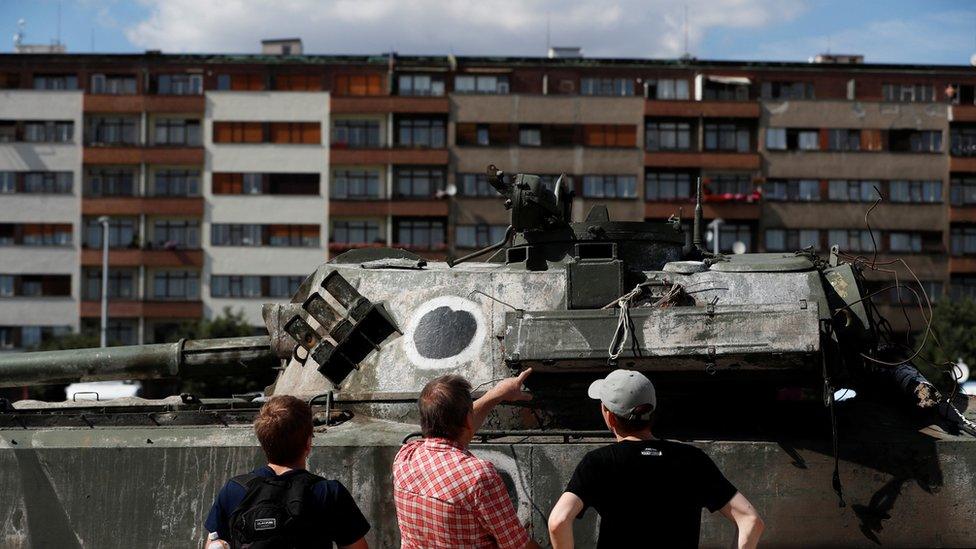
The display includes a damaged Russian tank
Russian military equipment captured by the Ukrainian armed forces has gone on display in the Czech capital, Prague.
The display of war trophies, which includes a damaged T-90 tank, Buk air defence system and Msta howitzer, was unveiled on Letna Plain, a large open space a short distance from Prague Castle.
"This exhibition proves how vital support from partner countries is to us," Ukraine's Minister of Internal Affairs Denys Monastyrsky told the BBC via email after launching the exhibit.
"Russian propaganda likes to scare people that their tanks could reach Prague, Berlin or Paris. Ukrainians demonstrate - only in the form of scrap," he said.
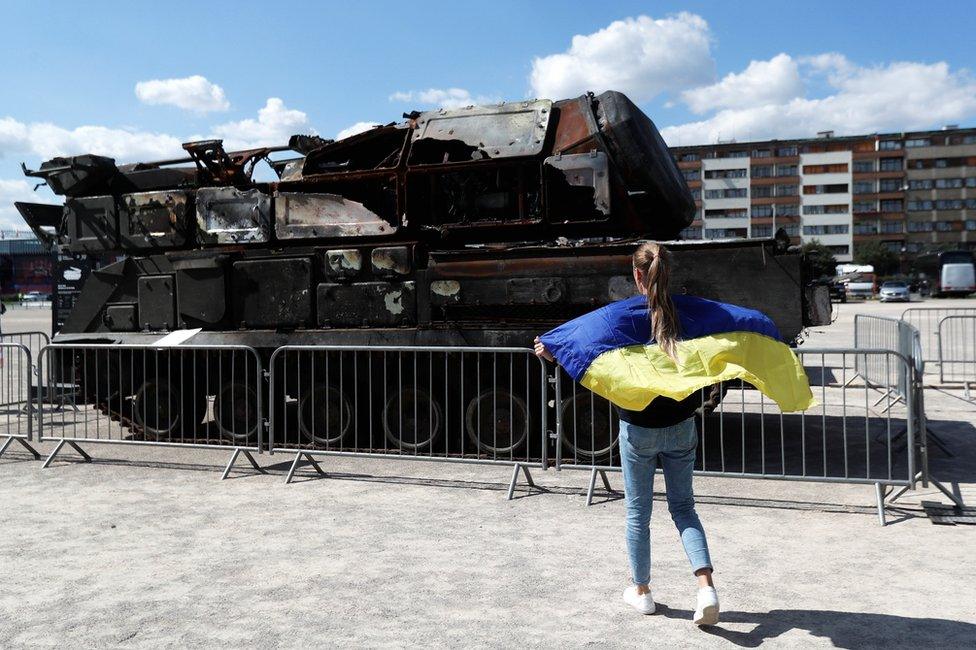
Russian military vehicles destroyed by Ukrainian forces in the conflict are part of the display
The exhibition - organised by his ministry - also features defused rockets and shells that have been raining down on Ukrainian cities since Russia's war against the country began in February.
"With this exhibition, we hope to show once again the horrors of war that Russia's aggression has brought to Ukraine," Ukrainian embassy spokeswoman Tetiana Okopna told Czech Television.
"But we also want to show how Czech weapons are being used," she went on, adding that a similar exhibition was being launched in Warsaw, with others planned for Germany and the Netherlands.
Standing alongside Mr Monastyrsky was his Czech counterpart Vit Rakusan, as well as the mayor of Prague Zdenek Hrib and European Commissioner Ylva Johansson.
"Millions of Ukrainians have been forced to flee Russia's aggression," Ms Johansson told the crowd of onlookers assembled for the exhibition.
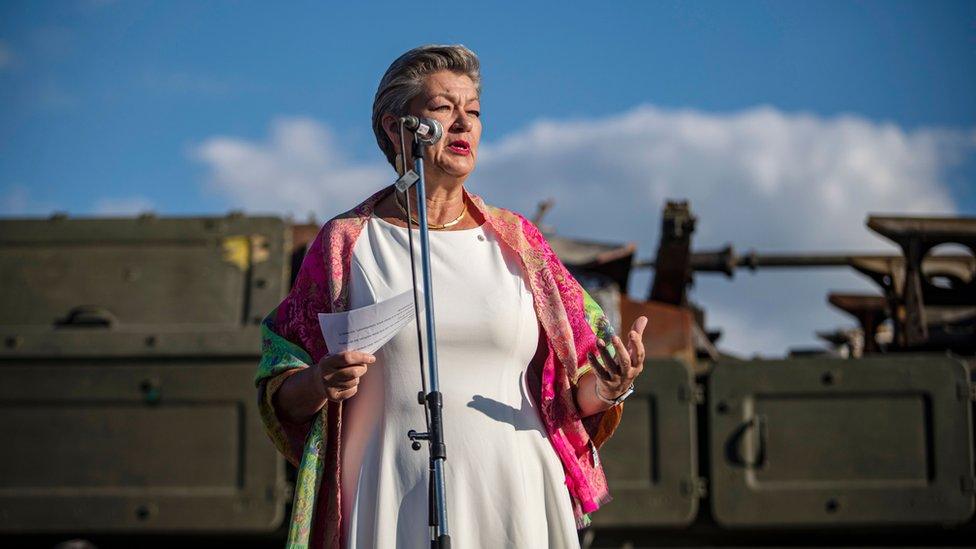
European Commissioner Ylva Johansson said the Czech people's support for Ukrainian refugees was an example to the rest of Europe
"I bow before the incredible solidarity Czechs have shown Ukrainian refugees. What you have done not only here in Prague, but across the country is an example to Europe," she added.
Ukraine's outgoing ambassador Yevhen Perebyinis has played a pivotal role in drumming up support for his country amongst Czech politicians and the public.
Early in the conflict, the Ukrainian embassy joined forces with the Czech defence ministry to launch a crowd-funding campaign to buy Czech weapons for the Ukrainian army. It has raised well over €50m (£42m).
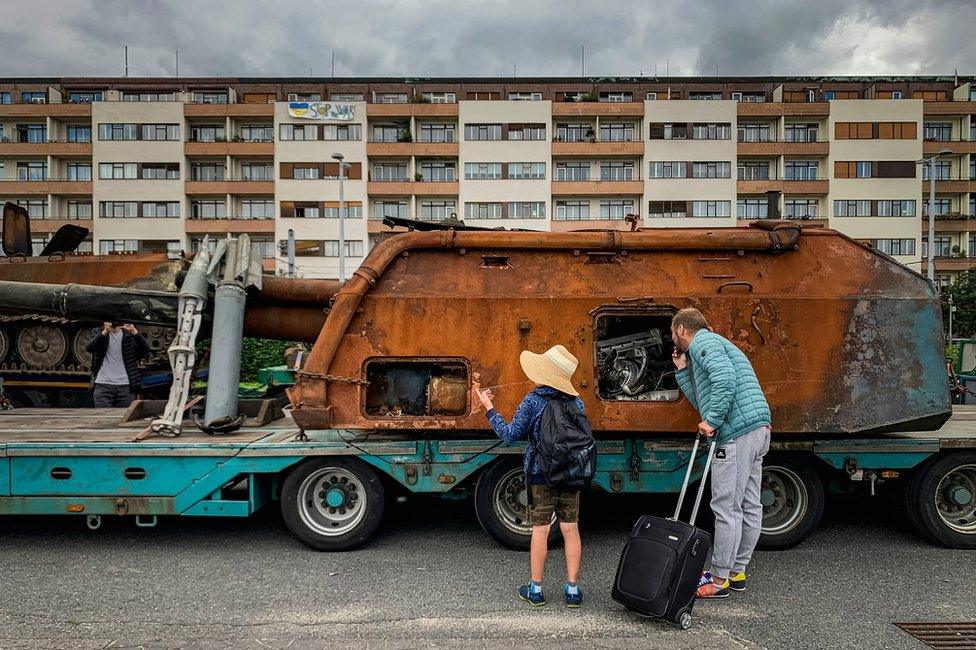
Similar exhibitions will be held in other European countries
The Czech government, meanwhile, has been one of Ukraine's earliest - and most muscular - supporters.
The Czech Republic was the first country to send tanks to Ukraine: T-72 main battle tanks from the Czech Army's active reserves. It has since sent more heavy weapons, including Mi-24 helicopters.
However, the transfers - a combination of donations and arms purchases - are shrouded in strategic ambiguity. Even after the US defence secretary Lloyd Austin publicly thanked Prague for sending its Mi-24s to Kyiv, the Czech defence ministry maintained what amounted to a diplomatic silence.
Photographs of the helicopters bearing Ukrainian insignia have since appeared on open-source intelligence sites on Twitter, apparently after being deployed to the battlefield.
But while support for Ukraine among Czechs remains high, some worry about the knock-on effect of rising energy and food prices caused in part by the conflict. There are fears that people both here in the Czech Republic and across Europe will gradually lose interest in the war.
Mr Monastyrsky is not among them.
"We are not afraid that Europe will lose interest in us," the minister told the BBC.
"We fear that even more people will die from murders by Russian soldiers, missile strikes, explosion of mines, collapsed houses, or lack of food.
"If the world aspires to sustainable development and peace, it must eliminate the cause of the problems - Russian aggression. It must be political exile, economic sanctions, and weapons for the Ukrainian military."
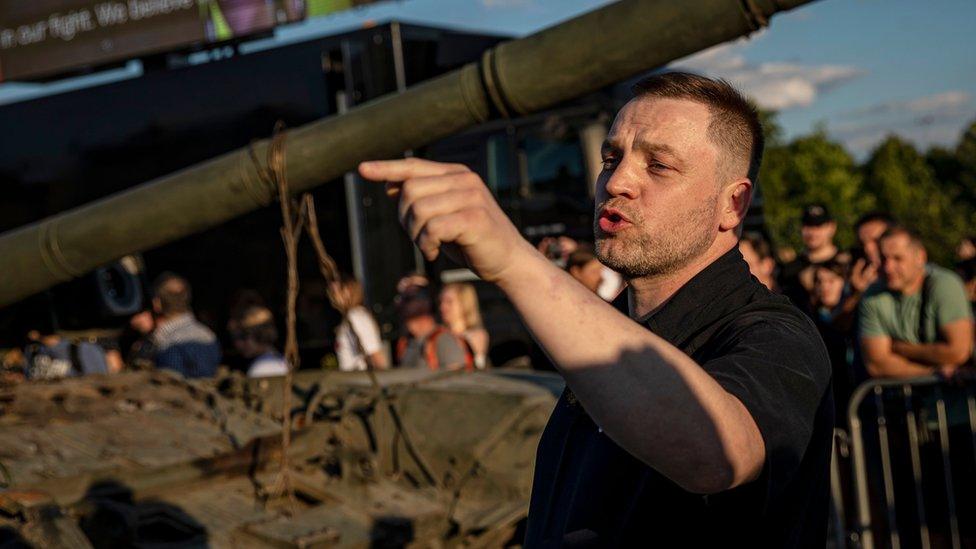
Ukraine's Minister of Internal Affairs Denys Monastyrsky, whose ministry organised the exhibition
Related topics
- Published17 February
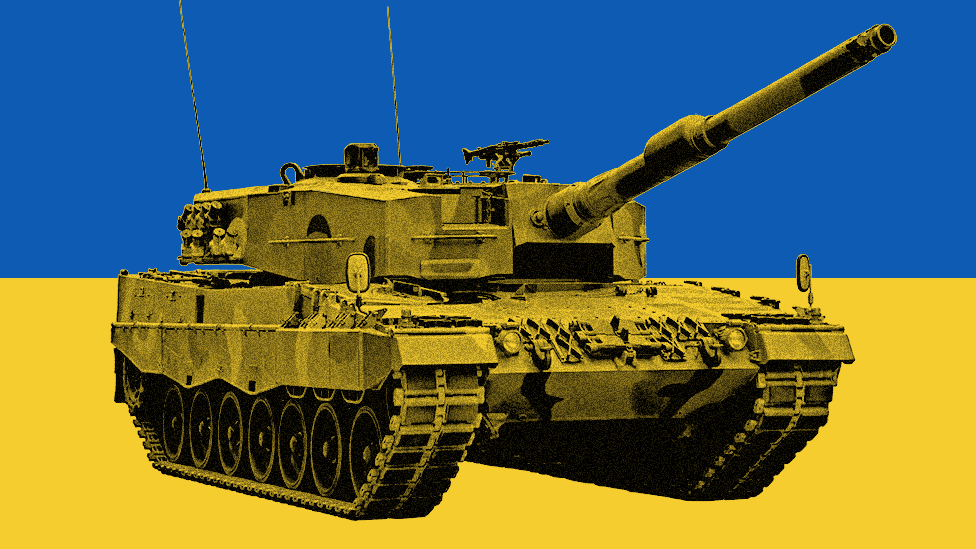
- Published15 June 2022
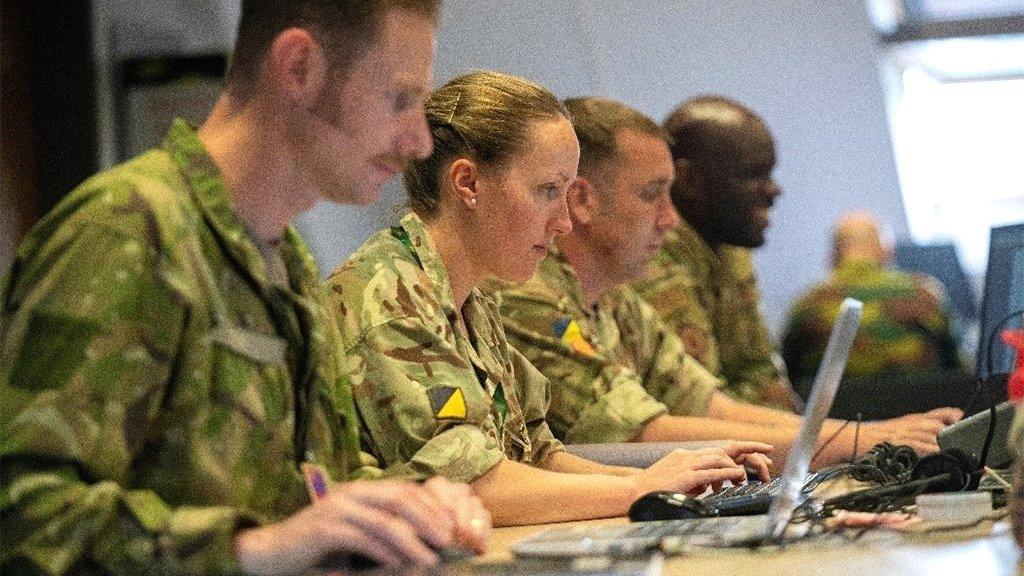
- Published4 July 2022
